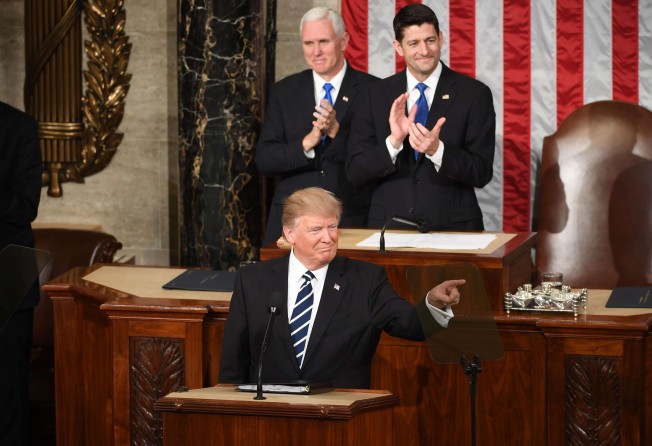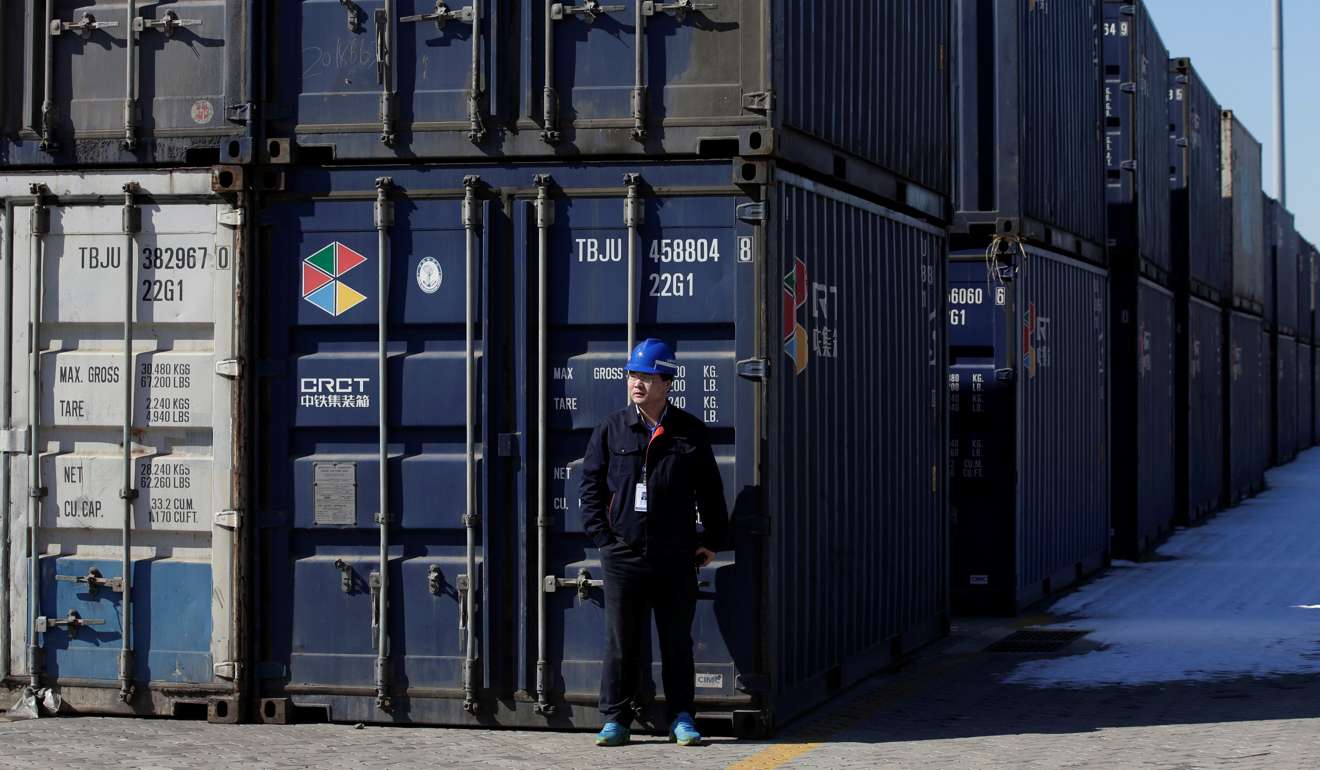Under Trump, US exceptionalism makes a roaring comeback
Andrew Sheng says there’s a unifying message behind his seemingly chaotic words and deeds, as will be made clear by a coming border tax that will surely hurt China and the rest of Asia

US President Donald Trump finally sounded presidential at his address to the US Congress this week, after a tumultuous first month of sound and fury in tweets, executive orders and policy switches that left friends and foes around the world in total confusion.
Look past the showmanship, though, and there is method to his seemingly erratic messages. They drive his opponents mad because they seem to disregard facts, logic or context. But the tweets in 140 characters convey a simple message to his followers that he is delivering on what he promised – a “strong America” and “America first”. Trump is a 21st-century politician using 21st-century technology to deliver his messages, bypassing traditional media, intellectuals, the bureaucracy and the establishment. His tweets reduce complexity to appealing simplicity. He makes outrageous points to divert attention in order to gain tactical advantage.
Not quite “the medium is the message”; rather, “the message is the action”. Whether what is promised can be delivered is less relevant than whether the tweet strikes a political nerve.
An ancient Chinese text known as the Thirty-Six Strategems can be used to interpret the signals of what Trump intends. The first of the 36 strategems is “Crossing the Sea by Fooling Heaven”, on how to achieve one’s objective by feint – you signal left and turn right.
Steve Bannon, the White House chief strategist, spoke recently about “deconstructing the administrative state”. There are three parts to his strategy: the delivery of stronger defence and homeland security; economic nationalism by “reconstructing” trade arrangements, such as rejecting the Trans-Pacific Partnership; and the winding back of regulations and the bureaucracy. All these appeal to the right wing of the Republican Party.
Watch: Steven Bannon on deconstructing the administrative state
So far, the financial markets are cheering on Trump, because all his major proposals appear to be pro-business – reduction in income tax, US$1 trillion for infrastructure, US$54 billion for additional defence, cutting welfare costs and kicking out illegal “bad dudes”. If delivered, these are positive for short-term growth, inflation and job creation. The twist lies in how to pay for all this spending.
Trumpland is not about the ‘End of History’, but the ‘Return of History’, in which US nationalism is returning to its historical roots
The answer is the border tax.
The Trump administration is moving towards a series of bilateral negotiations, which means that the multilateral system will be “deconstructed” by starving it of new resources. These may include contributions to foreign aid, the Environmental Protection Agency and the like.
Trump’s team is co-opting the cross-border tax idea, pushed hard by Paul Ryan, the Republican congressional speaker, to finance their policies. The tax works on making import costs non-deductible, which, according to a Peterson Institute study, is equivalent to a 25 per cent subsidy on exports and a 25 per cent tax on imports. In the short term, this will reduce the US trade deficit, which is consistent with the “Make America Strong” theme. Furthermore, it will fuel inflation, exactly what is required to reduce the US debt burden.

On this side of the Pacific, no one should be lulled by Trump’s endorsement of the “one China” policy. The main victim of a border tax, which is almost certain to come, will be China and Asia, because this region is the largest source of US imports, other than Canada and Mexico.
Thus, amid the noise surrounding what appear to be conflicting messages from the White House, the deep threat of Trump’s signal is that he will restore American exceptionalism by deconstructing the multilateral balanced order.
The late English philosopher Stephen Toulmin argued that in the shift from modernity to post-modernity, there are two paths – one forward-looking, and the other looking back to old ideas of religious purity and nationalism. Trumpland is not about the “End of History”, as forecast in 1990 by Francis Fukuyama, but about the “Return of History”, in which US nationalism is returning to its historical roots.
Managing this tumultuous change in political course will require all the wisdom of the Asian classics. When the elephant charges, the last of the Thirty-Six Strategems may be the smartest for many: “To run is the best stratagem”. The trouble is, in an increasingly small world, you can run but you can’t hide.
Andrew Sheng writes on global issues from an Asian perspective